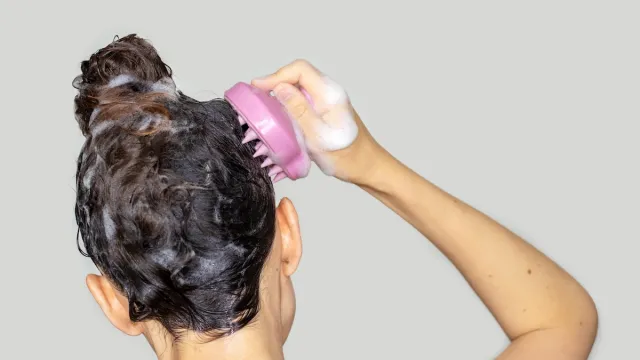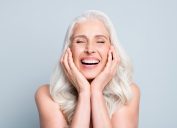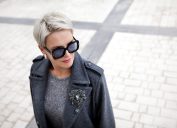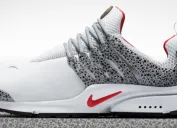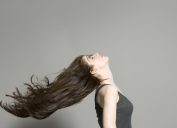6 Ways to Keep Your Scalp Healthy Over 50, According to Hair Stylists
Keep your scalp hydrated and clean for days with this expert advice.
Long or short, our hair is an undeniable source of our self-esteem. But with the changes that aging brings—thinning hair, graying hair, coarse hair—we can start to feel a bit down. In the quest for keeping hair healthy (and keeping more of it), it makes sense to get to the root of the matter. According to the American Academy of Dermatology (AAD), taking good care of your scalp can prevent some types of hair loss and will also get your strands in good shape. To learn more about scalp care, we got the scoop from expert hair stylists. Read on to learn the top six ways you can keep your scalp healthy and prevent hair loss after 50.
READ THIS NEXT: How to Embrace Keeping Your Hair Long After 50.
1
Don't shampoo too frequently.
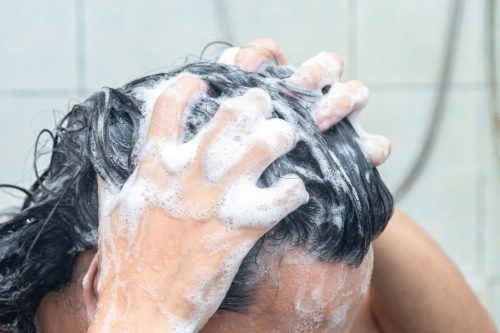
Lisa Abbey, professional hair stylist and founder of hair and body care brand Strength x Beauty, tells Best Life that shampooing more often than your hair really needs can be extremely drying to the scalp and hair.
If you're worried about getting greasy hair, Laura Roncagli, a professional hair stylist and co-founder of MyBeautik, says "your hair actually regulates itself after a little while and it won't look as oily as you think it might."
However, if you have a scalp that is more oily than normal, Abbey recommends alternating every other day with a shampoo/condition and a rinse/condition. By doing this, you'll avoid stripping your hair of its natural oils and drying out your scalp.
For normal to slightly dry hair, Abbey suggests shampooing two to three times per week. "On non-wash days be sure to brush regularly to distribute the oils evenly throughout the hair to help keep your ends from getting dry." And for very dry or damaged hair, Abbey says to shampoo no more than once or twice a week. "Because the PH of water can be drying to this hair type, limiting exposure to water helps."
2
Use the right shampoo and conditioner.

It's important to use the right products for your hair type, as they directly affect the scalp. For fine, limp, or oily hair, Abbey recommends a non-sulfate shampoo to prevent stripping the hair of its natural oils and drying out the hair and scalp. For conditioner, she says a protein- or keratin-based product will help build body and strengthen the hair. If you find that conditioners can be heavy for your hair, try reverse-washing—using conditioner first and shampoo second.
For normal to medium or slightly dry hair, a moisture-rich shampoo and hydrating conditioner are best to keep your hair and scalp healthy year-round. For damaged or very dry hair, use a co-wash or moisturizing shampoo and a heavier treatment or mask-type conditioner.
For more beauty advice delivered straight to your inbox, sign up for our daily newsletter.
3
Moisturize your scalp, too.
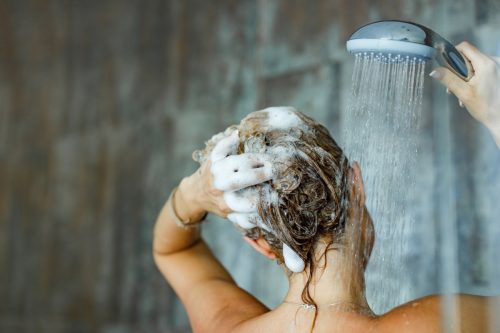
Getting moisture into the hair isn't always enough. As Abbey notes, it's more common to have a dry or itchy scalp in the winter months. "For the most part, this can be cured by simply conditioning your scalp in the shower: Use a moisturizing or hydrating conditioner and massage into your scalp, letting it penetrate for a few minutes before rinsing and completing your routine."
Ghanima Abdullah, hair expert and cosmetologist at The Right Hairstyles, tells Best Life that scalp problems over 50 often have to do with alopecia or hair thinning as the follicles become weaker. "To avoid hair thinning and hair loss, you should nourish your scalp with a natural oil three times a week that contains peppermint, rosemary and lavender… these essential oils encourage more hair follicles to produce hair instead of being in the resting phase. They also encourage the hair follicles to hold onto hair longer."
4
Avoid harsh chemicals.
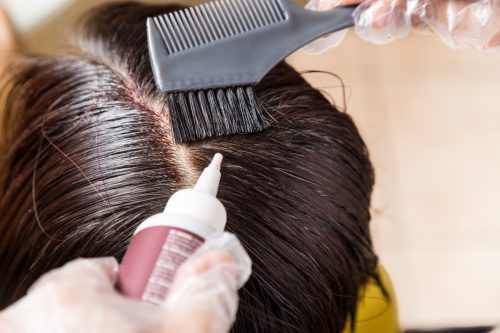
According to Akirashanti Byrd, co-founder and CEO of hair care blog Curl Centric, many people don't even realize they're using harsh chemicals on their scalp. For example, according to the AAD, many hair dyes contain high levels of para-phenylenediamine (PPD), which is a known scalp irritant. This can be especially troublesome for people prone to skin and scalp conditions such as dandruff or eczema, notes Byrd.
Jason Tyler, a stylist at Macho Hairstyles, advises against products that contain with silicones or parabens "because they can cause irritation on the scalp and lead to breakage or hair loss." Instead, he says to look for sulfate-free products.
READ THIS NEXT: 5 Secrets for Growing Out Gray Hair, According to Stylists.
5
Brush and massage to stimulate follicles.
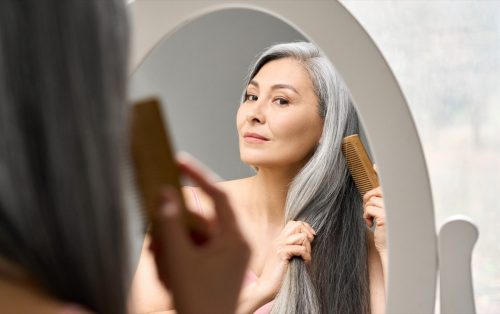
Byrd extols the benefits of a regular scalp massage. "Massage can help to improve circulation and increase blood flow to the scalp, which is important for maintaining healthy hair follicles. Massage also helps to loosen and remove built-up dead skin cells on the scalp, which can clog pores and lead to hair loss. In addition, massage can help reduce stress and tension, contributing to hair loss."
Abbey suggests using an exfoliating scalp scrub at least once a month to unclog pores and deep clean for a healthy scalp. She also advocates for regular brushing. "Brisk brushing stimulates the scalp and increases blood flow to your follicles which nourishes the hair and scalp and can lead to improved hair growth… Or you can use a scalp brush in the shower to massage the conditioner into the scalp and stimulate blood flow at the same time."
6
Stick to a healthy diet with the right nutrients.
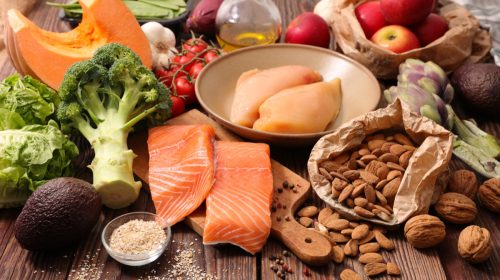
Roncagli believes a protein-rich diet is important, especially since people tend to eat less when they get older. "Make sure to eat loads of spinach, eggs, avocados, and red meat." Byrd emphasizes the importance of a healthy diet that includes plenty of vitamins E and B, nutrients that are essential for the health of the scalp and hair follicles. Biotin (vitamin B7), which is found in foods like eggs, milk, and bananas, helps with hair loss and brittle nails, according to WebMD.
